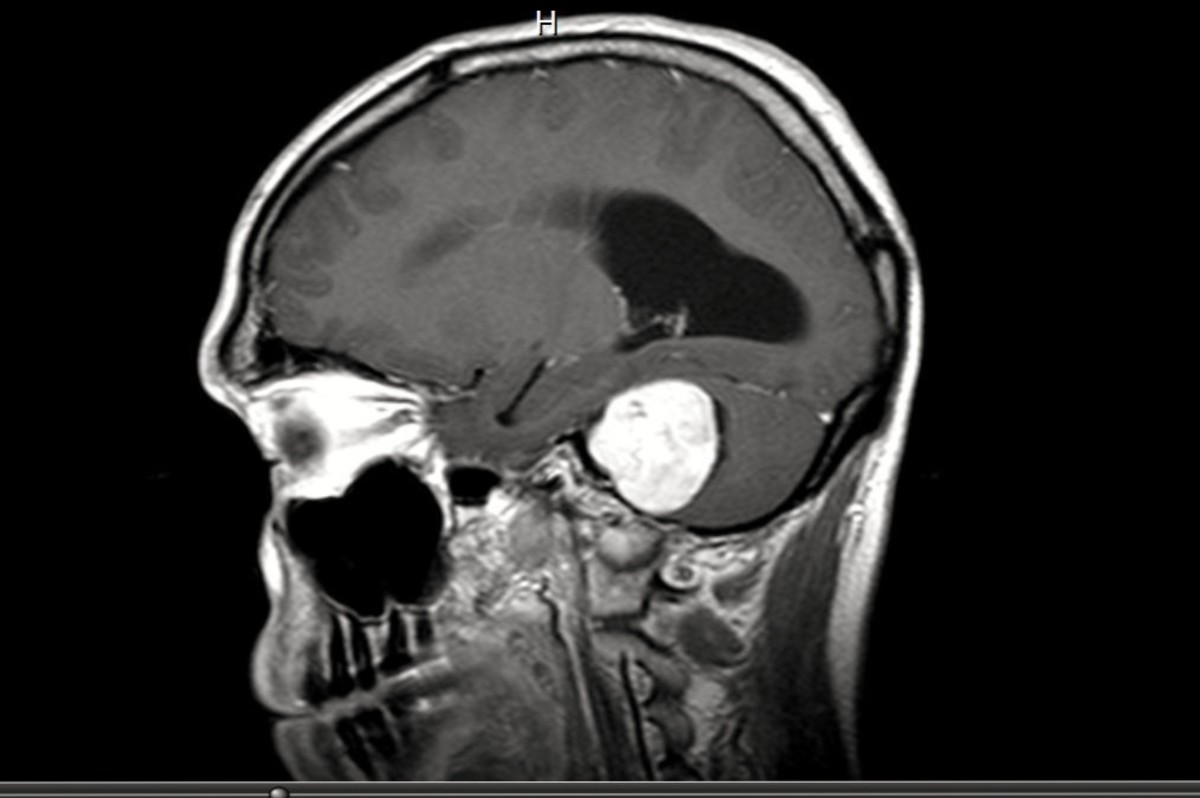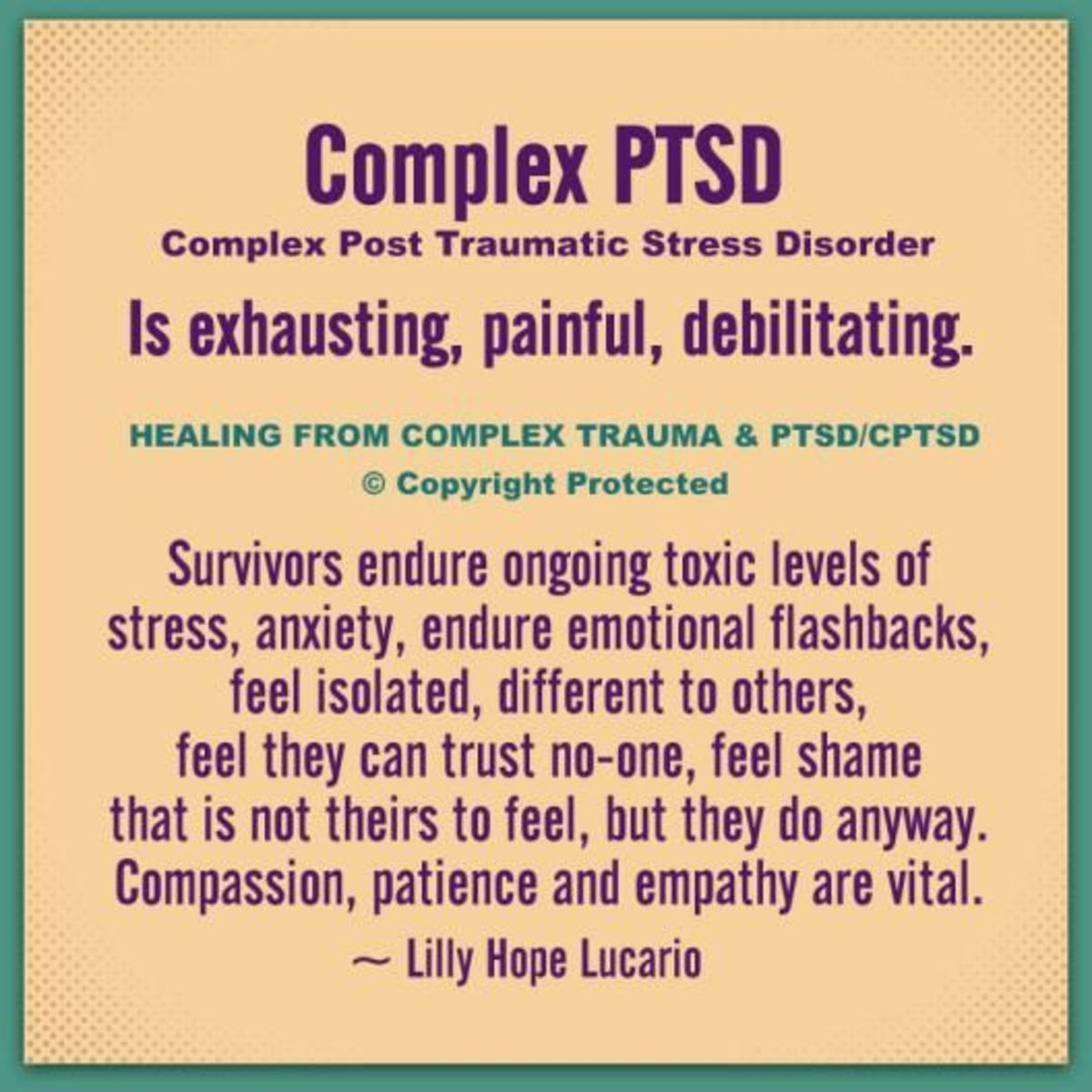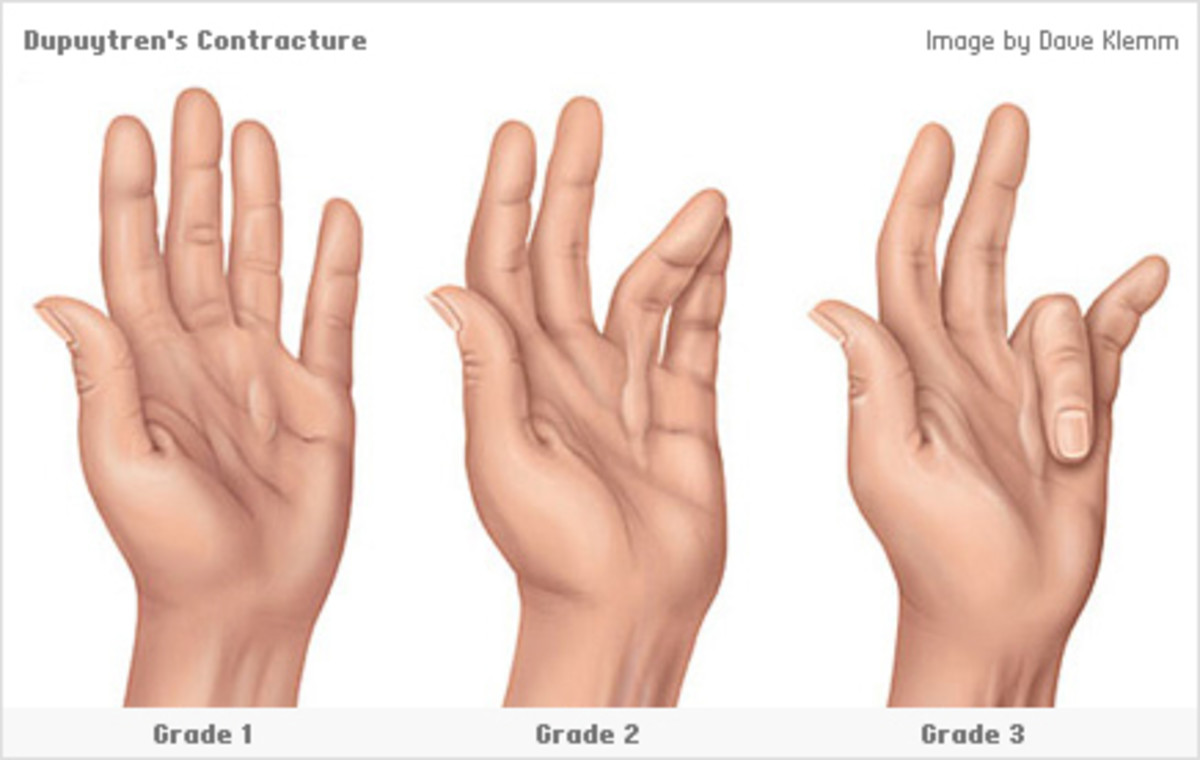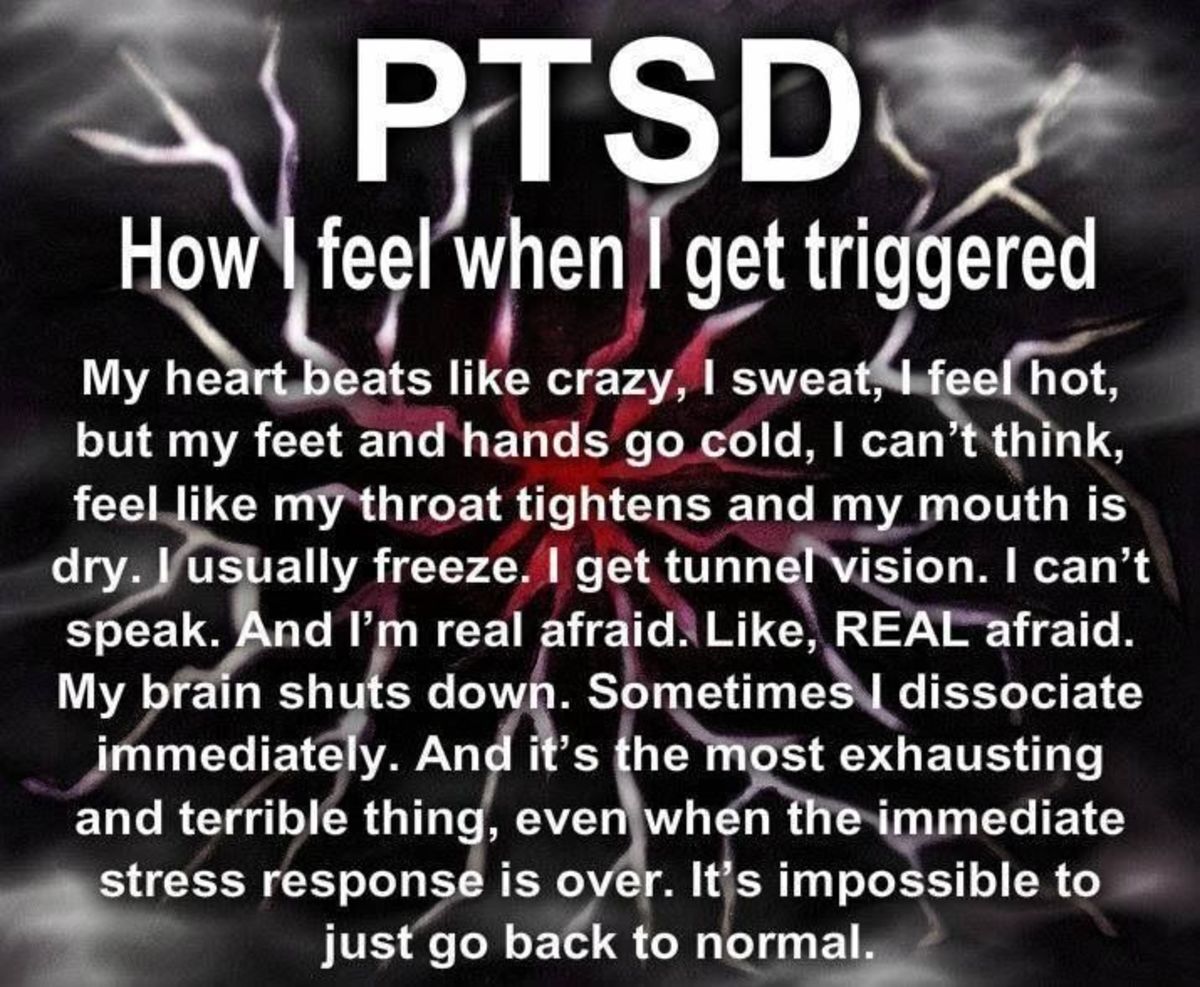- HubPages»
- Health»
- Mental Health»
- Anxiety Disorders
Why Complex PTSD Should Remain A Fictional Diagnosis
Because when we all need the same for the same reason, why separate us?

Some therapists are diagnosing people with a fictional mental illness called Complex PTSD. The diagnosis, or dare I say misdiagnosis, of complex PTSD is not included in the Diagnostic and Statistical Manual (DSM) by the American Psychiatric Association. I seriously hope it is never included as an official diagnosis.
Complex PTSD is a diagnosis that someone made up to categorize people with PTSD due to long-term abuse during which the person had little to no control for an extended period of time. Examples of this type of situation are being held hostage in a POW camp, being kidnapped and forced into the sex trade, or long-term or ritualistic child sexual abuse.
Am I saying that people who have experienced those conditions should not be diagnosed with PTSD or that those experiences aren’t absolutely horrific? I’m not saying that at all. If the person is experiencing symptoms of PTSD due to a trauma, they should definitely be diagnosed with PTSD.
My issue with the diagnosis of complex PTSD is that it does no good. I have only seen it cause division among people with PTSD and confusion for those who are diagnosed with it. Why is it necessary?
For it to be a necessary diagnosis, I would expect the symptoms to be different than a regular PTSD diagnosis. The problem is that the symptoms are no different. A person with PTSD from any trauma can experience the exact same symptoms as someone with “complex PTSD.”
Symptoms of Complex PTSD:
· Alterations in Emotional Regulation
· Alterations in Consciousness such as Flashbacks and Forgetting Part of the Trauma
· Changes in Self-esteem and the Person’s Self-concept
· Altering Perception of the Perpetrator
· Sense of Hopelessness or Loss of Faith
· Changes in Personal Relationships
· Avoiding Discussing the Trauma
· Self-harm
· Unhealthy Coping Methods to Numb the Feelings like Drinking or Drug Use
Every single one of those symptoms is common in anyone with PTSD, whether the PTSD was caused by being in a concentration camp or ongoing child sexual abuse as complex PTSD describes or if the trauma was a single event. So, what is the purpose of the diagnosis? So far, the only thing that I have seen it do is make people who are diagnosed with PTSD feel as though their experiences with the disorder are being belittled. If there is a complex PTSD, it is implied that regular PTSD is Simple PTSD. There is nothing simple about PTSD.
Some proponents of a diagnosis of complex PTSD have supported their views by saying that complex PTSD is different, because the victim is often blamed or considered to have a personal weakness for either the abuse or developing PTSD. How is that different from a rape victim who has PTSD and is blamed for the assault? Many, many people with PTSD are blamed for either the trauma or for developing the PTSD. I think these professionals are out of touch with what it is like to live with PTSD and lose friends over it. It’s happened to me and is quite common with people with PTSD.
Personally, if I went to a therapist and the therapist gave me a fictional diagnosis, I’d get up and walk out. I’d think it was time to look for a new therapist.
What does categorizing PTSD do? Has it led to new treatments? Not that I am aware of. Has it led to the development of new medication for PTSD? No. Has it confused people who are diagnosed with the condition? Well, yes, it has done a good job of that. Does it cause division among people with PTSD and Complex PTSD diagnoses? Certainly. One only has to look at a PTSD forum to see arguments about the Complex PTSD diagnosis.
If we are going to start categorizing PTSD, where does it end? Should we have Combat PTSD, 9/11 PTSD, Rape PTSD, Domestic Violence PTSD, Car Accident PTSD, etc? There could literally be hundreds of causes of PTSD. Complex PTSD, PTSD, and all the other categories based on causes of PTSD can cause the exact same symptoms of PTSD, so if we are going to separate Complex PTSD, why not have separate categories for each? Yes, that’s silly, and so is having a diagnosis of Complex PTSD.









